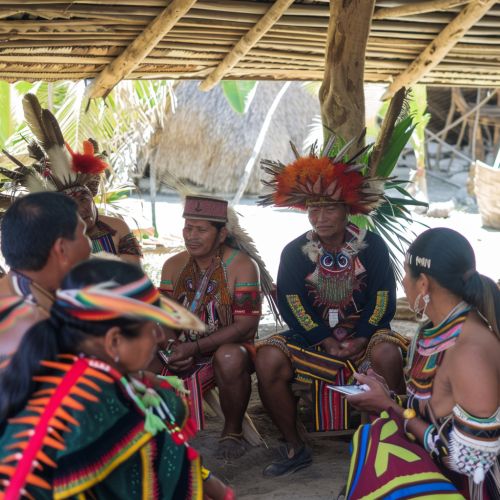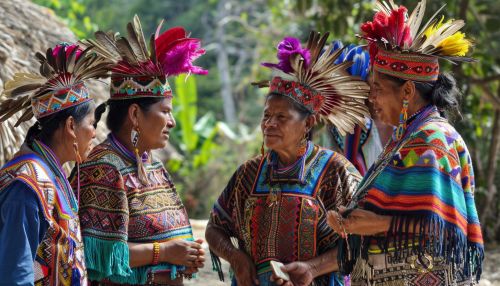K'iche' language
Introduction
The K'iche' language, also spelled Quiché, is a member of the Mayan language family. It is predominantly spoken by the K'iche' people in the central highlands of Guatemala. As one of the most widely spoken indigenous languages in the country, K'iche' holds significant cultural and historical importance. This article delves into the linguistic features, historical context, sociolinguistic aspects, and current status of the K'iche' language.
Historical Context
K'iche' has a rich historical background that dates back to the pre-Columbian era. The K'iche' people were part of the Maya civilization, which flourished in Mesoamerica. The language was used in various codices, including the famous Popol Vuh, a sacred text that provides insight into the mythology and history of the K'iche' people. The Spanish conquest in the 16th century led to significant changes in the use and status of the language, but it has managed to survive and evolve over the centuries.
Linguistic Features
Phonology
K'iche' phonology is characterized by a series of consonants and vowels that are distinct from those in Spanish. The language includes ejective consonants, which are produced with a simultaneous closure of the glottis. Vowel length is phonemic, meaning that the length of the vowel can change the meaning of a word.
Morphology
The morphology of K'iche' is predominantly agglutinative, meaning that words are formed by stringing together morphemes without altering them. This feature is evident in its complex verb structures, which can include multiple prefixes and suffixes to indicate tense, aspect, mood, and subject agreement.
Syntax
K'iche' follows a Verb-Subject-Object (VSO) word order, although variations can occur depending on the focus and emphasis within a sentence. The language employs a series of particles and clitics to mark grammatical relations and syntactic functions.
Sociolinguistic Aspects
Language Use and Domains
K'iche' is used in various domains, including home, community, and religious settings. It is also taught in some schools as part of bilingual education programs. However, Spanish is increasingly becoming the dominant language in many areas, leading to a decline in the use of K'iche'.
Language Attitudes
Attitudes towards K'iche' vary among speakers. While some view it as a crucial part of their cultural identity, others see it as less prestigious compared to Spanish. Efforts are being made to revitalize the language through educational programs and media.
Current Status
According to recent estimates, there are approximately one million speakers of K'iche'. Despite this relatively large number, the language is considered vulnerable due to the increasing influence of Spanish. Various organizations and community groups are working to promote the use of K'iche' through literacy programs, radio broadcasts, and cultural events.


